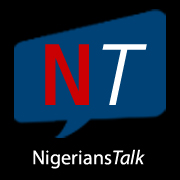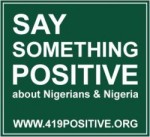The paralysis of analysis. This is what the recently concluded presidential election has generated for some thinkers and analysts. There is no dispute to the fact that the election was seen to be credible and peaceful. It has been adjudged to be comparatively free and fair, relative to previous elections of the sort. The turnout of voters at various polling units was quite impressive the highest figures reported at Bayelsa (85.6%), Imo (83.6%) and Abia (78%) states. Overall, the South Western states reported the lowest figures with an average turnout of 32.96%. Accreditation started promptly across the zones and subsequent voting was reported to be relatively smooth. Counting and collation was generally concluded within 48 hours, with the final announcement of a majority win by the ruling party and incumbent president, Dr Goodluck Jonathan.
The ‘Big One’ has come and gone. Results have been declared by the Independent National Electoral Commission (INEC) but rejected by the major opposition party, the Congress for Progressive Change (CPC). Sporadic violence broke out in some Northern states over the last two days following the declaration of results. These events have exhumed the age old issue of a possible North/South political divide. Does this divide truly exist?
The results of the presidential election show what may seem to be a sweeping of the North West and North East by the CPC, with its presidential candidate being Gen Buhari, a Northerner from North Western state of Katsina. The remaining four geopolitical zones were overwhelmingly won by PDP, fielding a South-South candidate, Goodluck Jonathan. The general interpretation given to this pattern is that Nigerians voted along geographical fault lines. Did they really? Did the North vote specifically for the Northern candidate? Did the South vote in similar manner? The NW and NE vote analysis shows that 31.5% and 31.1% of voters there supported the PDP candidate who is from the SS. So, it is clear then that assuming the absolute veracity of these figures, an average of 31% of the core North voted for a Southern candidate. In the course of pre election campaigns, CPC did not spread its reach to the SE or SS, perhaps hoping for a northern majority vote. This probably accounts for its dismal performance therein. However, if CPC had campaigned vigorously in these zones, is there no possibility that Southerners would have voted for a Northern candidate? It is beginning to seem that the Nigerian electorate demonstrated a paradigm shift towards voting for the individual, as against a blind vote based on geopolitical affiliation.
The other issue that becomes striking following this election is the personality/party debate. It is not news to any Nigerian how that the ruling party, PDP, has been in power for 12 years, without commensurate economic and infrastructural development. In this light, it would hardly be expected for the progress minded to cast votes for this same party whose performance they have repeatedly criticised and ranked as low. However, the election results prove otherwise. Have Nigerians then stopped being progress minded? Perhaps not. On the contrary, general sentiment holds that the electorate voted for the person they envisioned as being better positioned to foster national progress, irrespective of the political party platform on which he ran. This is the paradox of Nigerian politics. Ideally, one would reason that a typical party member will share the party’s political vision and ideology. How possible is it for a party candidate to function outside the political platform to which he is loyal and owes his victory? The majority of Nigerians who voted for the incumbent on the 16th of April probably have expectations of transformational performance and record economic development even though such grand achievements have rarely been attributed to the PDP. Is it possible to vote for the personality, divorcing the party? Is this the definition of an alternative political perspective?
It remains important to note that whatever analysis has been done is only as good as the authenticity and veracity of the declared results. The major assumption, albeit questionable, is that vote figures were not inflated in any of the six geopolitical zones. Analysis remains only as relevant as its underlying data is. In the coming days and years, many things will become clearer to the world of political analysts and observers. Time will tell whether there is a possibility for a political personality to break the political umbilical between himself and his party. Until then, we can only observe, analyse and hope.


Nice article..we can only hope especially with this party/individual hypothesis which we will validate 4 years time.
LikeLike
Posted by Oluseun | April 20, 2011, 4:39 pmKunle nice article here. However, I worry about the authenticity of facts and figures posted hear and there. There was a time when the number of people attested to have registered was way more than the number of people in a particular geo-political zone and even more than the 70% population of the Nigerian youths.
In my opinion, regardless of the fact that the most popular candidate won and it was obvious, the outcome of the election aftermath is also a pointer to the freeness and fairness of the whole exercise.
LikeLike
Posted by fatherla | April 21, 2011, 10:11 amGood work mate…I like your analysis…your thoughts leaves so much for the mind to chew…
LikeLike
Posted by Bankymoore | April 22, 2011, 12:48 amThanks boss
LikeLike
Posted by kunledurojaiye | April 22, 2011, 7:59 amSomething to really really think about. Thanks KD.
LikeLike
Posted by psho | April 23, 2011, 2:52 pm